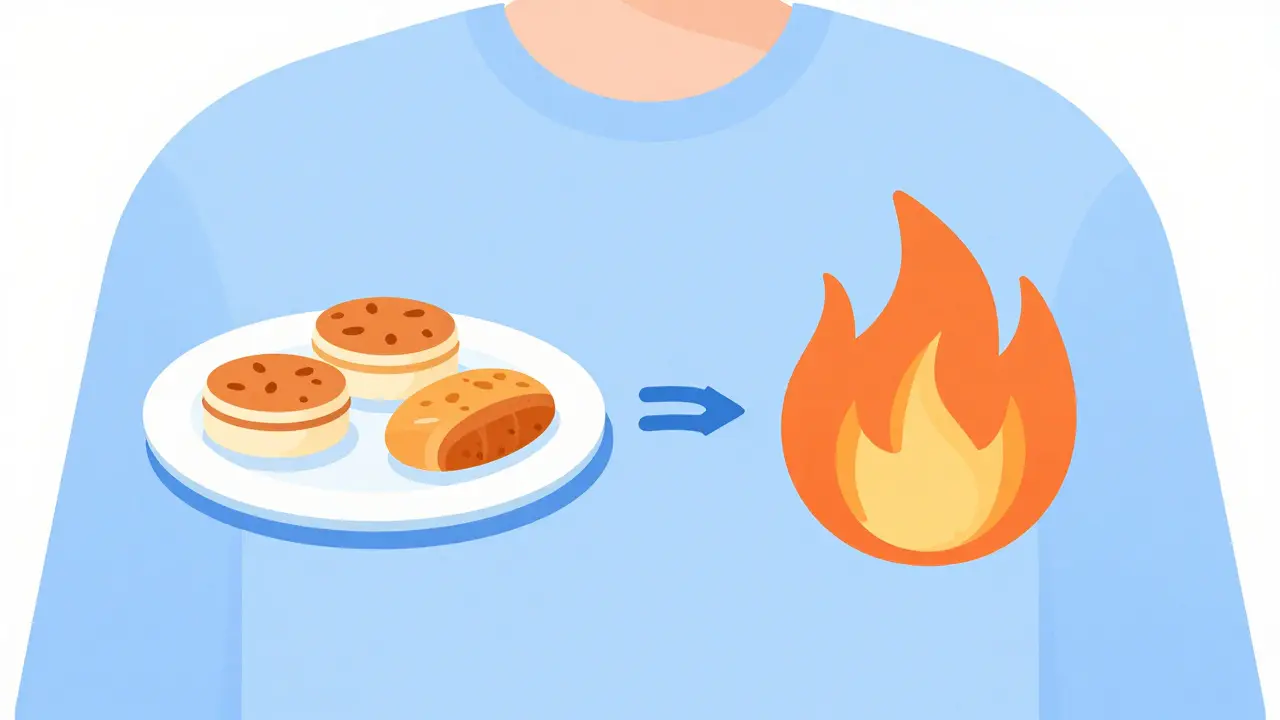- Strawberries support heart and metabolic health, but pills and extracts haven’t shown meaningful fat loss in people.
- Most weight-loss claims come from test-tube or animal data, not quality human trials.
- Whole strawberries can help a calorie deficit by adding fiber, volume, and sweetness for fewer calories.
- Beware “strawberry/raspberry ketone” marketing-no solid human evidence; safety at high doses is unclear.
- If you still want a supplement, use a tight label checklist, verify third-party testing, and keep your plan anchored to diet, protein, fiber, and steps.
You’ve seen the pink capsules promising to flatten your belly. Here’s the twist: the fruit is a great teammate, the bottle is mostly hype. The short answer? strawberry dietary supplements haven’t been proven to melt fat. The longer answer is more useful-you can use strawberries to eat fewer calories without feeling punished, protect your heart, and make your plan easier to stick to. That’s the leverage you actually want.
The science: what strawberry supplements are, what they claim, and what they actually do
First, what are we talking about? You’ll see strawberry extract capsules, freeze-dried strawberry powders, and confusing “strawberry/raspberry ketone” products. The powders usually give you polyphenols (like anthocyanins and ellagic acid) without much fiber. The ketone products are a different beast-they contain a fragrance compound (raspberry ketone) that’s also found in small amounts in some fruits, sometimes mislabeled as strawberry. The big promise is “fat burning.” The evidence doesn’t back that up in real people.
What the good sources say: the NIH Office of Dietary Supplements’ 2024 fact sheet on weight-loss supplements says there’s little reliable evidence that botanical pills lead to meaningful weight loss. A 2021 Cochrane review on herbal and plant-based weight-loss supplements came to a similar conclusion: studies are small, short, and low quality, with inconsistent results. The FDA and EFSA treat raspberry ketone as a flavoring, not an approved weight-loss drug. That doesn’t make it dangerous at food-like exposures, but it does say something about the gap between marketing and proof.
So what about strawberries themselves? In human trials, freeze-dried strawberry powders (often equal to 2-4 cups of fresh berries) have improved certain cardiometabolic markers-like LDL oxidation, HDL, insulin resistance, and inflammation-in people with metabolic syndrome or high cholesterol. Those are wins worth caring about. But weight change? In those trials, the scale barely budged. The likely reason: strawberries don’t meaningfully raise energy expenditure; they help you eat smarter, not burn fat by themselves.
Mechanisms people hype include: polyphenols “blocking” fat digestion, boosting fat oxidation, or changing gut bacteria. Some of that happens in cells or animals at high doses. In humans eating normal amounts, the practical effect is satiety and diet quality, not turbocharged thermogenesis.
Bottom line for the science: strawberries help your plan; they aren’t the plan.
Safety check. Whole strawberries are safe for most people. Watch out if you have a strawberry allergy or salicylate sensitivity. Supplements add an uncertainty tax: variable dosing, purity issues, and sometimes caffeine or synephrine blended in with “berry” branding. If you’re pregnant, nursing, on blood thinners, or have kidney stone history, talk to your clinician before adding concentrated extracts.
Use strawberries the smart way: a practical weight-loss playbook
If the pills don’t drive fat loss, what does? A small but steady calorie deficit you can stick to, with enough protein and fiber to keep you full. Strawberries help you get there without hating your plate.
Here’s a simple playbook:
- Set your deficit: aim for 300-500 kcal/day. That’s roughly 0.5-1 lb per week for most. Faster isn’t better if you rebound.
- Lock protein: target about 1.6 g/kg body weight per day (e.g., 120 g for a 75 kg person). Protein protects muscle, helps satiety.
- Hit fiber: 25-38 g/day. Berries make this easier without a ton of calories.
- Swap sweets: replace a 250-300 kcal dessert with 1.5-2 cups of strawberries (100-130 kcal) plus Greek yogurt or cottage cheese for protein. You save calories and stay satisfied.
- Add volume to meals: pile strawberries into breakfast oats, salads (with chicken and pistachios), or a post-workout smoothie. Volume beats willpower.
- Guard cravings window (8-11 p.m.): keep a prepped bowl of washed berries in the fridge. When the sweet tooth flares, you have a default.
- Move more without thinking: 8-10k steps/day makes your deficit more forgiving and helps keep hunger signals sane.
Real-world example. Let’s say you usually eat a 300 kcal slice of cake after dinner. Swap it for 1 cup strawberries (50 kcal), 150 g 2% Greek yogurt (120 kcal), and a drizzle of honey (50 kcal). You just cut ~80 kcal, added 17-20 g of protein, and boosted fiber. Repeat that five nights a week and you’re ~400 kcal down with better hunger control. That’s how weight loss stacks up without misery.
Do strawberry powders help? They can be convenient. A scoop (often 10-20 g) in a protein smoothie adds flavor and polyphenols for ~40-70 kcal. It won’t burn fat, but it can make a high-protein, lower-calorie shake taste better, which keeps you consistent.
A quick 7-day test you can run:
- Breakfast: oats or eggs + fruit (1 cup strawberries) + a protein source.
- Lunch: big salad or grain bowl; add a handful of strawberries if you crave sweet afterward.
- Dinner: plate protein first, veggies second, starch third. Dessert is strawberries with yogurt or dark chocolate (10-15 g).
- Daily: hit protein, fiber, and step goals; stop eating 80% full.
- Track: weigh in 3 non-consecutive mornings this week; take the average. If it’s flat after two weeks, trim 100-150 kcal/day.
Rules of thumb that work:
- Hunger first aid: 1 cup strawberries + sparkling water buys you 20-30 minutes to make a better choice.
- Snack design: protein (20-30 g) + fruit (1-2 cups) beats protein-only or fruit-only for staying power.
- Flavor leverage: strawberries make protein shakes and salads taste better so you don’t add sugary dressings or syrups.

Whole fruit vs powder vs extract vs “ketones”: costs, effects, and evidence
Not all “strawberry” products are the same. Here’s a quick comparison you can actually use.
| Option | What you get | Typical serving | Calories | Fiber | Evidence for weight loss | Best use | Common risks | Typical cost (US) |
|---|---|---|---|---|---|---|---|---|
| Fresh strawberries | Water, fiber, vitamin C, polyphenols | 1 cup (150 g) | ~50 kcal | ~3 g | No direct fat loss; helps satiety and calorie control | Swap for higher-calorie desserts/snacks | Allergy; pesticide residue if not washed | $2-$6 per lb (seasonal) |
| Freeze-dried strawberries | Concentrated flavor/polyphenols; low weight | 10 g (~1 cup fresh equivalent) | ~35 kcal | ~2 g | No direct effect; useful for convenient swaps | Top yogurt, cereal, trail mix | Easy to overeat; added sugars in some products | $15-$30 per lb |
| Strawberry powder (100% fruit) | Dehydrated fruit; some fiber; sugar naturally present | 10-20 g | ~40-70 kcal | 1-3 g | No direct effect; helps flavor protein shakes | Smoothies, baking, sauces | Added sweeteners in some brands | $15-$40 per 250-500 g |
| “Strawberry extract” capsules | Polyphenol-rich extract; minimal fiber | 300-1,000 mg | ~0-5 kcal | ~0 g | No reliable human evidence for fat loss | Only if you cannot eat fruit and want polyphenols | Purity/dose variability; interactions unknown | $15-$40 per month |
| “Strawberry/Raspberry ketone” pills | Fragrance compound (4-(4-hydroxyphenyl)-2-butanone) | 100-500 mg (varies) | ~0 kcal | 0 g | No quality human trials showing weight loss | Not recommended for weight loss | Unknown safety at high doses; stimulant blends common | $10-$30 per month |
How to read this if you just want the answer: eat the berries, mostly skip the pills. If you like powders for convenience, use them to make high-protein meals more enjoyable, not as a “fat burner.”
Want a quick label checklist before you spend a dollar?
- Is the first ingredient “strawberry” or is it a proprietary blend? If it’s a blend, hard pass.
- Is there third-party testing (USP, NSF, Informed Choice)? No seal, no sale.
- Any stimulants (caffeine, synephrine, yohimbine) snuck in? Don’t mix them with “berry” branding.
- Standardized actives listed (e.g., percent anthocyanins)? If not, the dose is a mystery.
- Added sugars or sugar alcohols? They can backfire if you’re chasing a deficit.
Decision tree you can use in 20 seconds:
- Can you eat 1-2 cups of strawberries most days? Yes → do that and skip the capsule. No → consider a pure powder (<10 g sugar/serving) to support meals.
- Are you hoping the pill burns fat by itself? If yes → manage expectations; invest in protein planning instead.
- Do you need convenience for travel? A small bag of freeze-dried berries beats candy-not for fat burning, for better choices.
FAQ and next steps (with troubleshooting for different situations)
Do strawberry supplements burn belly fat?
There’s no high-quality human evidence that strawberry capsules or “ketone” pills burn belly fat. Any change you see likely comes from your overall calorie deficit, not the supplement.
Is there any benefit to strawberry extract?
Possibly for cardiometabolic markers in people who can’t or won’t eat the fruit, but that’s not the same as weight loss. If you go this route, use third-party tested products and keep expectations grounded.
What about raspberry ketones labeled as strawberry?
It’s mostly marketing. In rodents, very high doses affected fat metabolism. Human evidence is not convincing, and safety at supplemental doses isn’t well established. Many products blend stimulants-treat those like any fat-burner: with caution, or better yet, avoid.
How many strawberries per day for weight loss?
1-2 cups works well for most people-around 50-100 kcal-with 3-6 g fiber and a lot of volume. Think of them as a swap for higher-calorie sweets or a way to bulk up protein meals.
Whole fruit or powder?
Whole fruit first. Use powders when you need convenience, like travel or quick shakes. Choose 100% fruit powders without added sugars and keep serving sizes reasonable.
Any interactions or medical reasons to avoid?
Allergies, salicylate sensitivity, and kidney-stone history are reasons to check with your clinician. If you’re pregnant, nursing, on anticoagulants, or on multiple meds, talk to your healthcare provider before using concentrated extracts.
Can strawberries help my blood sugar?
They can help blunt post-meal glucose when paired with protein/fat and replacing refined desserts. Some trials suggest improvements in insulin resistance with higher-dose freeze-dried powders, but that’s not the same as reversing diabetes. Use them as part of a full plan.
What do credible bodies say?
NIH’s Office of Dietary Supplements says most weight-loss supplements lack strong evidence. Cochrane reviews echo that for herbal aids. No FDA-approved strawberry product exists for weight loss as of 2025.
I’m stuck-no loss in two weeks. What now?
First, average your morning weights across three non-consecutive days this week; compare with two weeks ago. If you’re flat, trim 100-150 kcal/day (usually from fats or snacks), add 1,500-2,000 steps per day, and recheck in 10-14 days.
Next steps by scenario:
- Busy parent, little time: Pre-wash a 2-lb box of strawberries on Sunday. Daily snack: 1 cup strawberries + 1 string cheese + sparkling water. Swap your nightly dessert five nights/week.
- Desk worker with sweet cravings: Keep a bowl of strawberries and a 20-30 g protein yogurt in the office fridge. Afternoon default snack beats vending machine by 200+ kcal.
- Gym-goer cutting weight: Post-workout smoothie: whey isolate (25-30 g), 1 cup strawberries, spinach, ice, and a teaspoon of chia. Tastes like dessert; keeps your protein high.
- Prediabetes or high triglycerides: Use strawberries to replace pastries and sugary drinks. Aim for 30+ g of fiber/day and distribute protein evenly across meals. Recheck labs with your clinician after 8-12 weeks.
- IBS or sensitive gut: Strawberries are generally low-FODMAP. Start with 1 cup to test tolerance. Avoid sugar alcohols in “diet” strawberry products.
Quick checklist you can screenshot:
- Daily: protein 1.6 g/kg, fiber 25-38 g, steps 8-10k
- Swaps: dessert → strawberries + protein; cereal → Greek yogurt + berries
- Shopping: 2-3 lbs fresh or 1 bag freeze-dried per week
- Supplements: third-party seal, no proprietary blends, no stimulants
- Metric: 3-morning weight average every 2 weeks
One last pro tip: taste satisfaction beats white-knuckle restraint. Strawberries make high-protein eating feel indulgent. That’s the sustainable edge pills can’t give you.


20 Comments
Write a comment